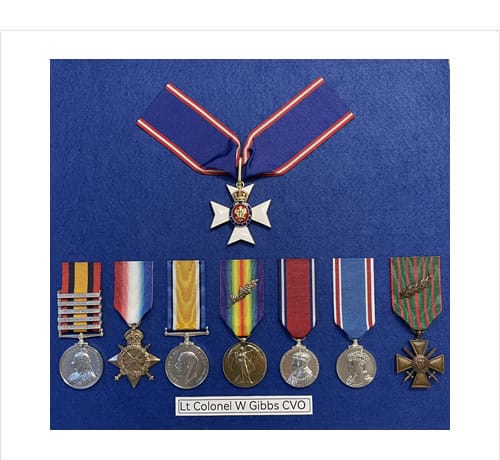William Gibbs was born in 1877.
He was educated at Eton and Oxford and joined the 7th Hussars from University in February 1900. He served in the Boer War and took part in the long drives which finally captured the elusive Boer Commandos.
He was promoted to Captain and by 1913 had been appointed Major Territorial Force, Eastern Mounted Brigade.
At the outbreak of the First War William was still in England on a staff appointment and subsequently saw active service in Gallipoli, Egypt and France where he was awarded the Croix de Guerre.
In 1917 he returned to the Regiment in time for its deployment to Mesopotamia.
In the fierce fighting against the Turks which followed Lt Col Gibbs commanded the Regiment in some very difficult engagements.
In the action crossing the River Zab the Regimental War Diary records that he found himself in “ a rather precarious position”, pinned down, outnumbered and under heavy fire.
In the days before radio, communications were challenging and the featureless desert made it almost impossible to know exactly what was happening and the strength of the enemy.
Despite all the challenges Gibbs and the 7th Hussars fought their way through.
He was wounded in a later engagement at Huwaish when eight out of thirteen officers were either killed or wounded and “the casualties amongst the N.C.O.s were particularly heavy.” He ignored his wounds and stayed in action till reinforcements arrived.
After the War William Gibbs was appointed Commander of the Royal Victorian Order and took command of His Majesty’s Yeoman of the Guard.
He died in 1963 at the age of 85.


